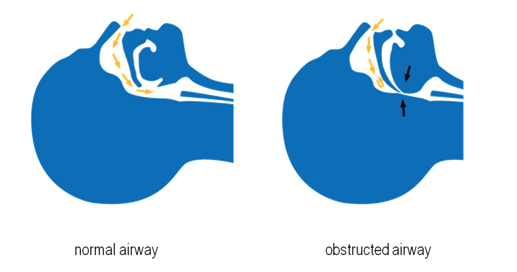Sleep Disorders
Sleep disorders are a medical disorder involving sleep patterns. Some sleep disorders may interfere with normal physical, mental, and emotional functioning, and can be caused by external factors, such as anxiety, depression, trauma, or a life transition. The symptoms typically involve difficulties related to sleeping, including difficulty falling asleep, falling asleep at inappropriate times, excessive sleep time, or abnormal behaviors associated with sleep. It is a relatively common disorder.
TYPES OF SLEEP DISORDERS
Obstructive Sleep Apnea (OSA): OSA , the most common form of sleep disorder, results when certain structures — muscles or tissue at the base of the tongue or back of the throat — relax or sag, blocking the flow of air in and out of the lungs during sleep. Despite valiant efforts, OSA sufferers simply can’t get the oxygen they need, resulting in loud snoring, apneas, and frequent arousal from deep sleep.
Central Sleep Apnea (CSA): This type of apnea results when the brain fails to signal to you to breathe. There would be no obvious signs you are trying to breathe, because your brain has failed to send the message to your respiratory muscles. CSA is less common than OSA.
Mixed Sleep Apnea (MSA): As the name implies, this type involves some combination of both OSA and CSA.
No matter what the cause, if you stop breathing the body cannot get the oxygen it needs to function. This lack of oxygen causes you to wake up from deep sleep just before you begin breathing again. People with severe apnea may suffer from such awakenings as many as 500 times a night because of low oxygen levels. It’s no wonder those with apnea may feel irritable or anxious the next day.
Because there are over one hundred specific sleep disorders, experiencing one in your lifetime is not uncommon.

COMMON SLEEP DISORDER SYMPTOMS
The most common sleep disorder symptoms include:

